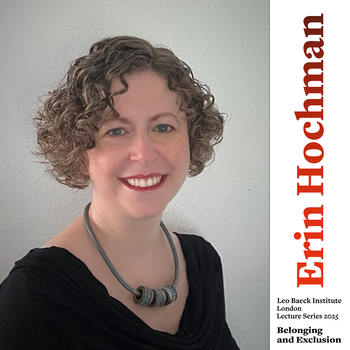The inaugural Eva Reichmann Lecture, held as part of the LBI 70th Anniversary Celebrations:
Eva Reichmann: Witness, Historian, Legacy
This special event celebrates the legacy of Dr. Eva Reichmann, a pioneering historian whose groundbreaking work continues to shape our understanding of Nazi persecution and Holocaust historiography.
Programme
Welcome & Introduction
Dr. Joseph Cronin (Director, Leo Baeck Institute London) and Dr. Toby Simpson (Director, The Wiener Holocaust Library) will open the…































